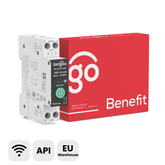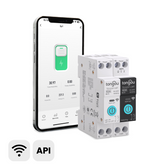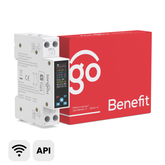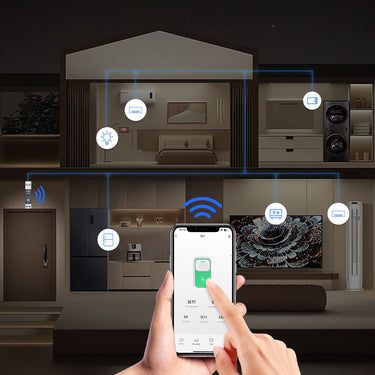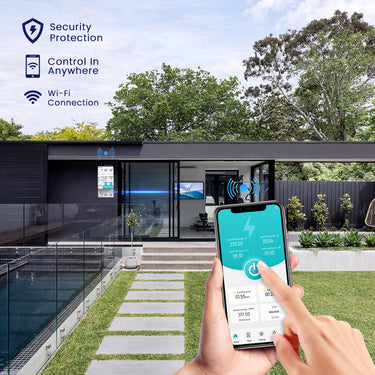What is the Difference Between Regular Circuit Breakers and Smart Circuit Breakers?

As technological advancements continue to permeate every aspect of our lives, electrical systems are not left behind. The emergence of smart breakers is transforming the landscape of power management, introducing a new era of efficiency, safety, and convenience. This article delves into the revolutionary role of smart breakers in modern electrical systems, highlighting their benefits, how they function, and their significant departure from traditional circuit breakers.
The Start of Smart Breakers
At the heart of any electrical system lies the need for protection—protection against overloads, short circuits, and any anomalies that pose risks to both the system and its users. Traditional circuit breakers have long served this purpose, acting as gatekeepers that interrupt power flow when a fault is detected. However, as digital technology progresses, so too does the scope of what's possible in electrical system management.
Smart breakers represent a leap forward, infusing the standard protective mechanism with intelligence and connectivity. These devices are not merely reactive; they are proactive, offering functionalities that extend far beyond simple circuit interruption.

Understanding Smart Breakers
Smart circuit breakers represent the next generation in electrical circuit management, integrating traditional protection mechanisms with digital technology. These devices offer remote monitoring and control, real-time data analytics, and the capability to integrate with home automation systems.
1. Remote Monitoring and Control:
Users can monitor their electrical system's status in real-time and remotely toggle circuits on or off, providing unparalleled control over power distribution.
2. Energy Consumption Analytics:
Smart breakers track energy use across different circuits, offering insights that can lead to more efficient energy consumption and substantial cost savings over time.
3. Integration with Smart Home Systems:
These breakers seamlessly integrate with smart home ecosystems, enabling automated actions—such as cutting off power in response to a detected hazard or optimizing energy usage based on predefined rules.
4. Predictive Maintenance
By analyzing patterns and identifying irregularities, smart breakers can predict potential system failures before they occur, facilitating preemptive action to mitigate risks.
Understanding Regular Circuit Breakers
Regular circuit breakers are designed to safeguard electrical circuits from damage caused by excess current, which is typically due to overloads or short circuits. They function by electromechanical means—when excessive current flows through the circuit, the breaker trips and breaks the circuit, thus preventing potential hazards. These devices are manual and require physical resetting after tripping.
1. Electromechanical operation
2. Manual reset after tripping
3. Simple installation and function
4. No remote monitoring or control

Smart Circuit Breaker's Advantages Over Traditional Circuit Breakers
The advantages of smart breakers are manifold, significantly outpacing what traditional circuit breakers offer:
1. Enhanced Safety:
Instant notifications and automatic interventions in response to detected electrical faults greatly reduce the risk of electrical fires and other hazards.
2. Efficiency and Savings:
Detailed analytics on energy use empower homeowners and businesses to identify wasteful practices, ultimately leading to more efficient energy use and lower utility bills.
3. Convenience and Control:
The ability to manage an electrical system remotely, from anywhere at any time, adds a layer of convenience previously unattainable with traditional breakers.
4. Future Readiness:
As the world leans more towards automation and smart technologies, smart breakers are a step towards future-proofing electrical systems, ensuring they are compatible with the next wave of technological innovations.
The Evolution of Electrical Safety and Efficiency
The transition from traditional to smart breakers signifies more than just an upgrade in technology; it represents a paradigm shift in how we approach electrical safety and efficiency. By offering a proactive and integrated approach to power management, smart breakers align with the broader shift towards smart homes and intelligent industries, where every element, from lighting to security, is interconnected and optimized for performance.
Conclusion
Embracing smart breakers is not merely adopting a new gadget; it's about stepping into the future of electrical systems. As this technology continues to evolve and integrate with the broader ecosystem of smart home and industrial automation, the potential for innovation in safety, efficiency, and management of electrical systems is boundless. With smart breakers, we're not just protecting our homes and businesses; we're setting a new standard for how power is managed in the digital age.


